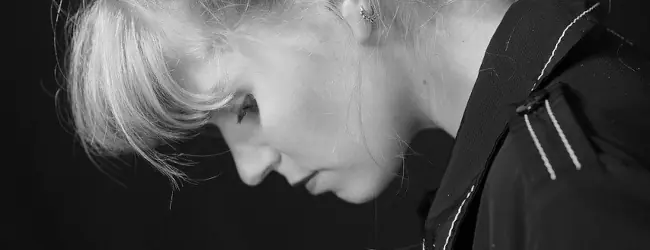Although I have recently talked about the structure of our subconsciousness as the concept of the six subconscious layers, I will wrap up and conclude this topic today.
How to have reliable judging criteria
Sometimes, we want reliable judging criteria to create our lives. Many things could exhaust us mentally, such as disgusting jobs, interacting with stressful people, doing things against our will, lacking time to care for ourselves, or not having freedom. We have to make decisions without knowing what the right answer is.
That makes us want appropriate answers based on our various situations. We don’t want to worry and suffer anymore. If we have reliable judging criteria, we can make decisions calmly.

However, we sometimes don’t have such reliable things. We cannot depend on common sense or usual teachings due to our unique personalities. Traditions or religions also don’t work for us because they are for the majority, and we are the minority. Even if we consult with others, they don’t understand us.
In other words, we have no choice but to rely on ourselves. That is why we need reliable judging criteria in our minds.
In such a situation, getting feedback from our subconsciousness could help.
Today, I will talk about how to get subconscious feedback using the six subconscious layers. That might give us reliable judging criteria.
What are the six subconscious layers?
The concept of the six subconscious layers is the model that allows us to understand the mental structure. When encountering difficulties, we have to modify our behavior to break through. Depending on the difficulty level, the six subconscious layers give us our own values that fit our current situation.

Those layers are as follows:
- (consciousness side) [1st layer] Social judgment: This layer contains rules about what kinds of actions our society praises. For example, society may applaud victory, richness, fame, or the power of influence.
- [2nd layer] Compensatory judgment to the outside: This layer contains rules about what compensatory behavior we can use to reduce our stress. For example, we can go out to play, go shopping, drink alcohol, complain to others, or engage in any other distraction.
- [3rd layer] Compensatory judgment inward: This layer contains rules about what kind of mental compensation we can use to reduce our stress. For example, we can be more patient by feeling gratitude for being still alive, comparing ourselves with poorer people, or finding a little happiness even in a big misfortune.
- [4th layer] Negative self-judgment: This layer contains rules about what kinds of activities prevent our happiness. For example, we might avoid making messy rooms, lying to others, discouraging others, or betraying others.
- [5th layer] Positive self-judgment: This layer contains rules about what kinds of activities make us happy. For example, we might like to please others, help weak people, be creative, feel meaning in activities, or concentrate on our interests.
- (subconsciousness side) [6th layer] Repressed judgment: This layer contains rules about what kinds of activities we should avoid at all costs. The repressed rules are in this layer. For example, we might forbid ourselves from being selfish, refuting, complaining to others, bothering our surroundings, or being inferior to others.
Getting depressed triggers knowing the subconsciousness
When we decide something, we judge based on those rules. We always have those rules written down in our minds.
This system of following the rules makes our decisions easier. We don’t have to question the same basic assumptions many times. We can follow certain rules until they don’t work anymore and correct them. That frees us from those bothersome, repetitive considerations.
If we encounter a failure or stagnation, we get depressed. That triggers restructuring our rules. We get feedback from deeper subconscious layers and modify our values.

The deeper the layer to which the rule belongs, the less often we have to change. Social evaluations are trendy and vary easily. On the other hand, our fundamental nature doesn’t change frequently.
That is why we usually think about superficial things, such as how to be evaluated by society or relieve stress.
Getting depressed solves the problem
As long as it doesn’t work, we will continue to be depressed. In other words, if we get more depressed, we will eventually know what to change.
Although we don’t have to change the deeper rules frequently, the basic assumptions could change as we grow or our environment changes. We become more mature, skilled, and wise. In this case, we have to realize our changes.

Getting depressed by failure triggers that. Failure means that reality is different from our assumptions. We misunderstand cause and effect. That realization allows us to modify our assumptions.
Usually, the rules in the 6th layer are the most influential because we regard them as unbreakable. In other words, they have the strongest tones of voice, such as ‘should’ or ‘must’. That is why we always put repressed rules ahead of our preferences.
Getting depressed gives us the energy to live
Many people misunderstand that being depressed is painful. They believe that depression causes self-harm or suicide. That misconception makes us suffer.
The reality is the opposite, at least for people who can change their lifestyle.
Getting depressed gives us the energy to live and allows us to feel our honest values.
Imagine when we are crying and shedding tears. In such a moment, we are full of energy to live. Although it consumes energy, it makes us feel good and relieves the stress.

It is the same as using muscle. By the way, I like walking and cycling. They are my everyday hobby. Some might love jogging every day. Using muscle in moderation makes us pleasant, no matter how many people like cars and don’t want to move their muscles as much as possible.
We can say that getting depressed is the same as using mental muscle. We can judge again based on our current nature and situation, even if it consumes our energy.
That improves our lives because we can change our behaviors.
Forbidding getting depressed causes tragedy
However, on the other hand, if we forbid getting depressed, we try to stick to being positive. That keeps us conscious only of the 3rd layer or the higher. That causes stagnation because we cannot modify our behaviors. We will have no choice but to wait for the environmental change.
That causes self-harm or suicide. We continue to be able to neither contribute to society nor change ourselves. That makes us unable to forgive ourselves. That causes self-harm.

The long-term stressful stagnation exhausts us. As we get more exhausted, we want to be free from stress instantly. The ultimate comfort is death. Death is hope to get out of this hell. That causes suicide.
Imagine a situation that makes you want to die. Discouragement itself never makes us feel like committing suicide. On the other hand, when we are exhausted, we want to commit suicide. Never-ending stress takes away our mental power to live.
Getting depressed never causes suicide. Sticking to being positive does.
Conclusion
That is how to get subconscious feedback using the six subconscious layers.
Getting depressed gives us effective feedback but also energy. That makes us energetic. That is the same as walking or jogging.
This concept might give us reliable minds and allow us to modify our way of life more comfortably.
Thank you for reading this article. I hope to see you in the next one.


